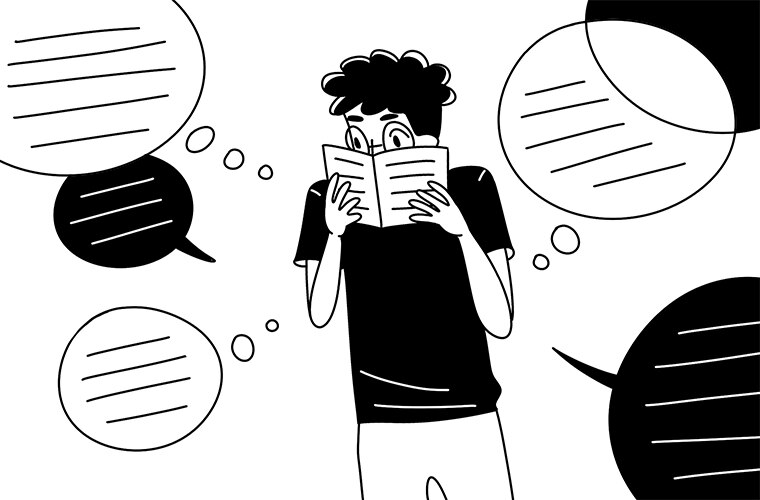情态动词无人称和数的变化;不能单独使用,必须与其后的动词原形构成谓语。下面小编整理了关于情态动词的用法,供大家参考!

情态动词有can(could), may(might), must, have to, shall(should, will(would), dare(dared),need(needed), ought to等。
一、can, could
1) 表示能力(体力、知识、技能)。
Can you lift this heavy box?(体力)
此时可用be able to代替。Can只有一般现在时和一般过去式;而be able to则有更多的时态。
I’ll not be able to come this afternoon.
当表示“经过努力才得以做成功某事”时应用be able to,不能用Can。如:
He was able to go to the party yesterday evening in spite of the heavy rain.
2) 表示请求和允许。
-----Can I go now?
----- Yes, you can. / No, you can’t.
此时可与may互换。在疑问句中还可用could,might代替,不是过去式,只是语气更委婉,不能用于肯定句和答语中。
3) 表示客观可能性(客观原因形成的能力)。
They’ve changed the timetable, so we can go by bus instead.
4) 表示推测(惊讶、怀疑、不相信的态度),用于疑问句、否定句和感叹句中。
Can this be true?
二、may, might
1) 表示请求和允许。might比 may语气更委婉,而不是过去式。否定回答时可用can’t或mustn’t,表示“不可以,禁止”。
----Might/ May I smoke in this room?
---- No, you mustn’t.
用May I...?征徇对方许可时比较正式和客气,而用Can I...?在口语中更常见。
2)用于祈使句,表示祝愿。
May you succeed!
3) 表示推测、可能性(不用于疑问句)。
might不是过去式,它所表示的可能性比may小。
1.He may /might be very busy now.
2.Your mother may /might not know the truth.
三、must, have to
1) 表示必须、必要。
You must come in time.
在回答引出的问句时,如果是否定的,不能用mustn’t(禁止,不准),而用needn’t, don’t have to(不必).
---- Must we hand in our exercise books today?
---- Yes, you must.
---- No, you don’t have to / you needn’t.
2) must是说话人的主观看法, 而have to则强调客观需要。Must只有一般现在时, have to 有更多的时态形式。
1.he play isn’t interesting, I really must go now.
2.I had to work when I was your age.
3) 表示推测、可能性(只用于肯定的陈述句)
1.You’re Tom’s good friend, so you must know what he likes best.
2.Your mother must be waiting for you now.
四、dare, need
1) dare作情态动词用时, 常用于疑问句、否定句和条件从句中, 过去式形式为dared。
1.How dare you say I’m unfair?
2.He daren’t speak English before such a crowd, dare he?
3.If we dared not go there that day, we couldn’t get the beautiful flowers.
2) need 作情态动词用时, 常用于疑问句、否定句。在肯定句中一般用must, have to, ought to, should代替。
1.You needn’t come so early.
2.---- Need I finish the work today?
---- Yes, you must. / No, you needn’t.
3)dare和 need作实义动词用时, 有人称、时态和数的变化。在肯定句中,dare后面常接带to的不定式。在疑问句和否定句中,dare后面可接带to或不带to的不定式。而need后面只能接带to的不定式。
1.I dare to swim across this river.
2.He doesn’t dare (to) answer.
3.He needs to finish his homework today.
五、shall, should
1) shall 用于第一人称,征求对方的意见。
What shall we do this evening?
2) shall 用于第二、三人称,表示说话人给对方的命令、警告、允诺或威胁。
1.You shall fail if you don’t work hard.(警告)
2.He shall have the book when I finish it.(允诺)
3.He shall be punished.(威胁)
六、will, would
1) 表示请求、建议等,would更委婉。
Will / Would you pass me the ball, please?
2) 表示意志、愿望和决心。
1. I will never do that again.
2. They asked him if he would go abroad.
3) would表示过去反复发生的动作或某种倾向。would表示过去习惯时比used to正式,且没有“现已无此习惯”的含义。
1.During the vacation, he would visit me every other day.
2.The wound would not heal.
4) 表示估计和猜想。
It would be about ten o’clock when she left home.
七、should, ought to
1)should, ought to表示“应该”,ought to表示义务或责任,比should语气重。
1.I should help her because she is in trouble.
2.You ought to take care of the baby.
2)表示劝告、建议和命令。should, ought to可通用,但在疑问句中常用should。
1.You should / ought to go to class right away.
2. Should I open the window?
3) 表示推测
should , ought to (客观推测), must(主观推测)。
1.He must be home by now. (断定他已到家)
2.He ought to/should be home by now.(不太肯定)
3.This is where the oil must be.(直爽)
4.This is where the oil ought to/should be.(含蓄)
can与can’t
I can't give you an answer now.The man can't be my uncle.He has gone to Beijing。
could与couldn’t
①“能,会”表示过去的能力。②在疑问句中表示委婉的请求。③“有可能,也许”
Jim could play the piano well when he was young.Could I have a cup of tea? I'm not sure when the flight to America will take off.I think it could be leaving in an hour.
must与mustn’t
You must finish your homework first!They must be very tired after a long walk.
may与might
You may sit here if you want.Your sister may be waiting for you now.
①may的过去式。②表示请求、许可,语气比may更委婉。③表推测,“有可能,也许”,可能性低于may。
He asked if he might go home.Might I smoke here?No one knows what might happen in the future.

孔乙己是贫困潦倒的知识分子。在书中,孔乙己是一个知识分子,满口“之乎者也”,但是他很穷,还窃书,说过“读书人的事,怎么能叫窃,”被人嘲笑,他...

自然界产生氧气的化学方程式:光合作用的反应式为6CO2+12H2O→C6H12O6+6O2+6H2O。包括光反应和暗反应两个过程。需要具备光...

有的高校没有条件,只要学业水平成绩都合格就可以,比如中国科学院大学。有的需要平常学习考试成绩,比如北京外国语大学要求高三第一学期期末成绩在全...

在四则运算中,表示计算顺序,在小括号之后、大括号之前;表示两个整数的最小公倍数;表示取未知数的整数部分;在函数中,表示函数的闭区间;在线性代...

济南开设的最好的职高学校有:济南方信集团职业高中、济南公共交通职业高中。济南市公共交通职业高级中学是由济南市公共交通总公司承办,业务属济南市...

实然:是说事物实际上就是这样的,但不同于现实性(现实性指其有合理性和客观性);应然:就是应该是怎么样的意思,比如说这件事,就应该是那样的结果...

地中海气候一种夏季炎热干燥、冬季温和多雨,雨热不同期的气候类型。地中海气候冬季受西风带控制,锋面气旋频繁活动,气候温和,最冷月的气温在4-1...

碱石灰,又称钠石灰,碱石灰是白色或米黄色粉末,疏松多孔,是氧化钙(CaO,大约75%),水(H₂O,大约20%),氢氧化钠(NaOH,大约3...